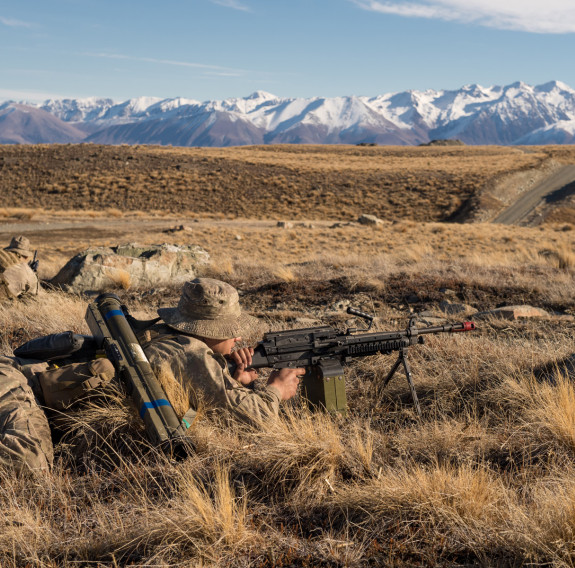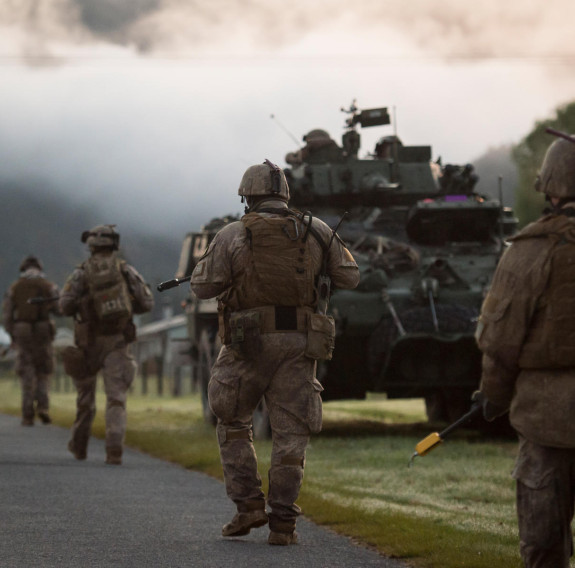Te rangamaro
Combat ready
Combat readiness is our underlying purpose. It's what we train for.
To keep New Zealand safe and secure, and also help with the safety and security of those who depend on us, the Army has to have the equipment, people and skills necessary to go into combat when called on.
Military operations come in many forms. We could be defending New Zealand’s territory - our highest priority. We could be delivering a combat capability in our Exclusive Economic Zone, or in our neighbourhood - anywhere from the South Pole to the Equator. We could be part of a combined operation in New Zealand, or another part of the world.
Our security relies on being in partnership with other countries, working together to promote security and peace. That means from time to time we need to share the military duties that help create stability, not only in New Zealand’s territory, but across the globe. While we don’t have the same military resources as larger countries, our Army has to be combat-capable in order to do our share. If we go somewhere with our partner countries, we support them and they support us. That means we need to be as good as they are, and bring the right skills to the job.
The Defence Force is subject to civilian control, through the Minister of Defence and the Prime Minister’s Cabinet, and is open and honest with the New Zealand public about our activities, within the security constraints essential to our role. We represent New Zealand’s foreign policy and are bound by international laws, such as the law of armed conflict and international human rights law.
This means that when the New Zealand Army embarks on operations, we’re not only a good international citizen, we’re ready to stand alongside partner countries and be counted on to be effective.

